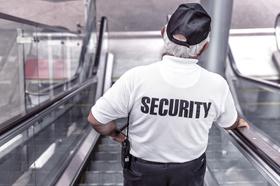For the 2025-26 school year, there are 4 public high schools serving 1,781 students in Coffee County School District. This district's average high testing ranking is 6/10, which is in the top 50% of public high schools in Tennessee.
║┌┴¤═°╣┘═° High Schools in Coffee County School District have an average math proficiency score of 20% (versus the Tennessee public high school average of 25%), and reading proficiency score of 42% (versus the 40% statewide average).
║┌┴¤═°╣┘═° High School in Coffee County School District have a Graduation Rate of 88%, which is more than the Tennessee average of 87%.
The school with highest graduation rate is Coffee County Central High School, with 89% graduation rate. Read more about public school graduation rate statistics in Tennessee or national school graduation rate statistics.
Minority enrollment is 21% of the student body (majority Hispanic), which is less than the Tennessee public high school average of 42% (majority Black).
Overview
This School District
This State (TN)
# Schools
11 Schools
507 Schools
# Students
4,376 Students
327,116 Students
# Teachers
300 Teachers
21,160 Teachers
Student-Teacher Ratio
15:1
15:1
Student By Grade
District Rank
Coffee County School District, which is ranked within the bottom 50% of all 147 school districts in Tennessee (based off of combined math and reading proficiency testing data) for the 2022-2023 school year.
The school district's graduation rate of 89% has decreased from 93% over five school years.
Overall District Rank
#83 out of 147 school districts
(Bottom 50%)
(Bottom 50%)
Math Test Scores (% Proficient)
29%
34%
Reading/Language Arts Test Scores (% Proficient)
35%
37%
Science Test Scores (% Proficient)
37%
40%
Graduation Rate
89%
90%
Students by Ethnicity:
Diversity Score
0.32
0.60
% American Indian
n/a
n/a
% Asian
1%
2%
% Hispanic
11%
15%
% Black
2%
20%
% White
82%
59%
% Hawaiian
n/a
n/a
% Two or more races
4%
4%
All Ethnic Groups
District Revenue and Spending
The revenue/student of $12,484 is higher than the state median of $11,979. The school district revenue/student has stayed relatively flat over four school years.
The school district's spending/student of $11,090 is less than the state median of $11,478. The school district spending/student has stayed relatively flat over four school years.
Total Revenue
$55 MM
$12,104 MM
Spending
$49 MM
$11,597 MM
Revenue / Student
$12,484
$11,979
Spending / Student
$11,090
$11,478
Best Coffee County School District ║┌┴¤═°╣┘═° High Schools (2025-26)
School
(Math and Reading Proficiency)
(Math and Reading Proficiency)
Location
Quick Facts
Rank: #11.
Coffee County Central High School
(Math: 18% | Reading: 51%)
Rank:
Rank:
6/
Top 50%10
100 Red Raider Dr
Manchester, TN 37355
(931) 723-5159
Manchester, TN 37355
(931) 723-5159
Gr: 10-12 | 1,287 student Student-teacher ratio: 18:1 Minority enrollment: 21%
Rank: #22.
Coffee County Raider Academy
(Math: 26% | Reading: 35%)
Rank:
Rank:
5/
Bottom 50%10
865 Mcminnville Hwy
Manchester, TN 37355
(931) 723-3309
Manchester, TN 37355
(931) 723-3309
Gr: 9 | 425 students Student-teacher ratio: 16:1 Minority enrollment: 22%
Rank: #33.
Coffee County Virtual Academy
(Math: ≤10% | Reading: 11-19%)
Rank:
Rank:
1/
Bottom 50%10
1756 Mcminnville Hwy
Manchester, TN 37355
(931) 570-2670
Manchester, TN 37355
(931) 570-2670
Gr: 6-12 | 69 students Student-teacher ratio: 10:1 Minority enrollment: 10%
Rank: n/an/a
Coffee County Koss Center
Alternative School
1756 Mcminnville Hwy
Manchester, TN 37355
(931) 723-5189
Manchester, TN 37355
(931) 723-5189
Gr: 6-12
Recent Articles

How ║┌┴¤═°╣┘═° Schools Support Students on Free / Reduced-Lunch Programs
Explore how U.S. public schools support students eligible for free or reduced-price lunch through nutrition, academic, and wraparound services in 2025.

Hidden Costs of ║┌┴¤═°╣┘═° Schools: Fees, Supplies & Extras
Explore the hidden costs in public schoolsÔÇöfees, supplies, extracurricularsÔÇöand how parents can plan for them in 2025.

║┌┴¤═°╣┘═° School Funding 2025: What Families Should Know
Essential insights on public school funding in 2025ÔÇöhow it works, whatÔÇÖs changing, and what families should know to stay ahead.





